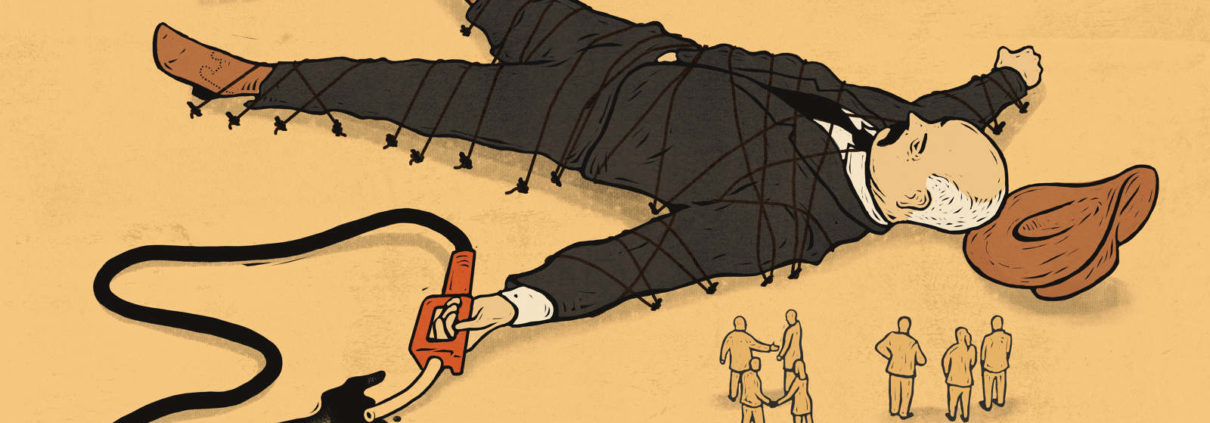Climate Change and a Call to Action: Personal Statement
One of my biggest challenges growing up was attempting to define myself outside of my proximity to others. Growing up, this was a difficult task, particularly in my academic life. I was fortunate enough to receive a scholarship to attend a highly selective High School located in downtown Chicago. Nearly everyone who attended was in the top five percent of Chicago’s income, so I spent my formative years surrounded by people with means who were in a distinctly different situation from my own. I did not grow up poor, the differences between us were far less pronounced. My friends would return from break with presents and experiences from Australia, China, Ecuador, and Iceland. In contrast, I did not feel like anything I would have brought back from my grandmother’s house in Kettering, Ohio could really compare. I was conflicted about whether I really belonged among my peers, but to my relief, this was a feeling that dramatically changed once I discovered environmental activism.
My passion for environmental activism began in my sophomore year. I took an environmental science class, primarily because the teacher was the soccer coach, but to my surprise, I ended up loving the subject. It was a nontraditional environmental science class that instead focused on the humanitarian consequences of climate change and the destruction of our ecosystem. The class perfectly demonstrated the urgency of the situation, and I was enthralled. As the class continued, I realized that I gravitated towards both legal and policy solutions as potential answers to climate change. I had no idea just how impactful my new interest in the environment would be on the trajectory of my personal and professional life.
Two years after my first class, when we were applying to college and choosing the path our lives would take, I thought back to the plaza in downtown Chicago that was filled with hundreds of chanting high schoolers, all waiting with bated breath for change. I recalled my time in our school’s environmental club, but most importantly I thought about my family: my cousins who had come face to face with the California wildfires; and my choice was easy. I wanted and needed to do something for our environment.
In my freshman year at American University, I was invited into a three-year advanced Politics and Policy program to study Law. For the first time in my life, I had a concrete plan. On the first day of my intro to law seminar, we went around listing the types of law we were interested in. From the back, I heard “environmental law”. I was startled. I had no idea environmental law even existed, let alone being a major legal specialization. I had always loved the environment and been interested in studying law, but this was the first time I could realistically use my two interests cooperatively. So, I eagerly began a hopeful future as an environmental lawyer.
I was initially interested in the UK Fulbright program because of the United Kingdoms’ fascinating history with the environment and sustainability. The UK was the birthplace of the first Industrial Revolution, which was one of the most consequential contributors to global warming in history. On the other hand, the United Kingdom was the first country to legally mandate a reduction in greenhouse gas emissions through the Climate Change Act of 2008. Studying environmental solutions in a country with such a rich history would be an incredibly advantage. London also consistently ranks within the top ten major cities for sustainability. Learning in a hub that is so well known for the topic that interests me would hopefully transform and widen my views on the subject.
While I believe that studying abroad at the Fulbright Summer institute can teach me the history, knowledge, and skills to continue down an environmental career path, its true strength comes from the connections I will make with individuals who share a similar drive and passion. These individuals will all have different ideas and perspectives to solve our common goal. This opportunity would be transformative because it would dramatically broaden my perspective of climate change and sustainability questions. This Fulbright opportunity would provide me with opportunities to interact with a wide array of people: driven students, accomplished teachers, and influential policymakers, each with a different perspective on climate change solutions. This diversity of perspectives present at UCL’s summer school would definitively change the way I see the world and the United States’ environmental policy. A foundational characteristic necessary to become a great lawyer is a deep level of care and understanding for the people you represent. My hope is to represent the earth and I am certain that the UK summer institute will equip me with the proper care, connections, and understanding to turn that hope into reality.


Leave a Reply
Want to join the discussion?Feel free to contribute!